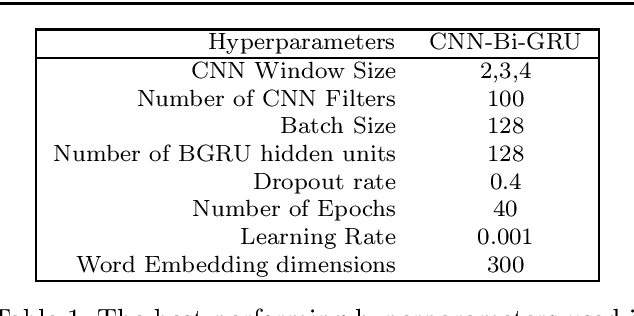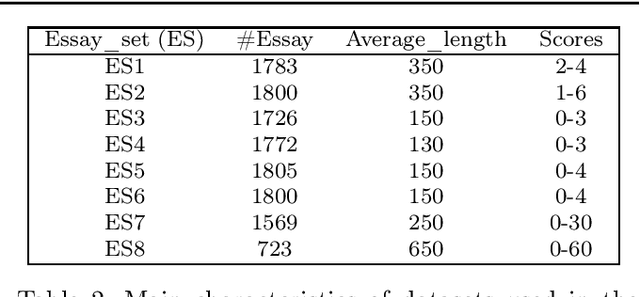Deep Learning Architecture for Automatic Essay Scoring
Paper and Code
Jun 16, 2022



Automatic evaluation of essay (AES) and also called automatic essay scoring has become a severe problem due to the rise of online learning and evaluation platforms such as Coursera, Udemy, Khan academy, and so on. Researchers have recently proposed many techniques for automatic evaluation. However, many of these techniques use hand-crafted features and thus are limited from the feature representation point of view. Deep learning has emerged as a new paradigm in machine learning which can exploit the vast data and identify the features useful for essay evaluation. To this end, we propose a novel architecture based on recurrent networks (RNN) and convolution neural network (CNN). In the proposed architecture, the multichannel convolutional layer learns and captures the contextual features of the word n-gram from the word embedding vectors and the essential semantic concepts to form the feature vector at essay level using max-pooling operation. A variant of RNN called Bi-gated recurrent unit (BGRU) is used to access both previous and subsequent contextual representations. The experiment was carried out on eight data sets available on Kaggle for the task of AES. The experimental results show that our proposed system achieves significantly higher grading accuracy than other deep learning-based AES systems and also other state-of-the-art AES systems.
 Add to Chrome
Add to Chrome Add to Firefox
Add to Firefox Add to Edge
Add to Edge